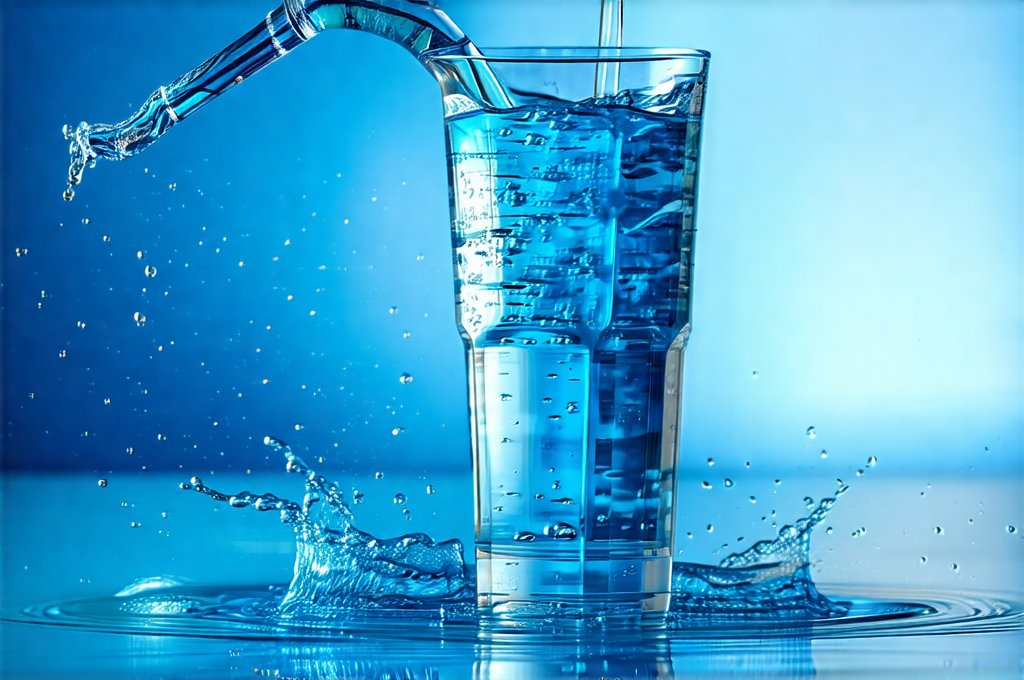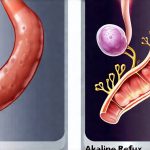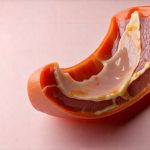Gastroesophageal reflux disease (GERD), commonly known as acid reflux, is a chronic digestive disease impacting millions worldwide. It occurs when stomach acid frequently flows back into the esophagus, causing irritation and symptoms like heartburn, regurgitation, difficulty swallowing, and even chest pain. Managing GERD often involves lifestyle modifications, over-the-counter medications, or prescription drugs aimed at reducing stomach acid production or protecting the esophageal lining. Recently, alkaline water has gained traction as a potential complementary therapy for GERD, with proponents suggesting it can neutralize stomach acid and alleviate symptoms. However, the science behind this claim is complex and often debated, necessitating a thorough examination of both its potential benefits and possible drawbacks. This article will delve into the intricacies of alkaline water’s impact on GERD sufferers, exploring current research, examining mechanisms, and providing a balanced perspective for informed decision-making.
The appeal of alkaline water stems from the idea that it can counteract the acidity associated with GERD. Many believe that increasing the body’s pH level through consuming alkaline substances promotes better health and reduces inflammation. While this concept has roots in nutritional science – understanding how different foods impact our internal environment – applying it specifically to GERD requires careful consideration. The human digestive system is remarkably adept at maintaining a specific pH balance, and dramatic shifts can actually disrupt normal digestive processes. Therefore, it’s crucial to evaluate whether alkaline water truly offers significant advantages for individuals struggling with acid reflux or if its benefits are largely overstated. It’s also important to differentiate between alkaline-producing foods, which offer nutritional value alongside potentially pH-altering effects, and commercially produced alkaline water, often differing in composition and source. Understanding how lifestyle choices impact gut health can be key for many.
Understanding Alkaline Water & GERD
Alkaline water is defined by a higher pH level than regular drinking water, generally falling above 7 on the pH scale (neutral is 7). While naturally occurring alkaline water exists due to minerals dissolved from rocks, much of what’s commercially available is created through ionization – an electrochemical process that separates acidic and alkaline molecules in water. This results in water with a higher concentration of negatively charged ions, often marketed as offering superior hydration or health benefits. The core theory behind its potential use for GERD revolves around neutralizing stomach acid. Stomach acid is essential for digestion but becomes problematic when it refluxes into the esophagus. The idea is that alkaline water can raise the pH of the stomach contents, reducing their acidity and thus minimizing esophageal irritation. However, this concept isn’t as straightforward as it appears.
The human body possesses robust buffering systems designed to maintain a relatively constant pH level in the stomach, typically between 1.5 and 3.5 for optimal digestion. When alkaline substances enter the stomach, these buffering systems immediately begin working to restore the acidic environment. This means that while alkaline water might temporarily raise the pH of the stomach contents, it’s unlikely to significantly or sustainably alter its overall acidity. Furthermore, some research suggests that reducing stomach acid can actually worsen GERD in certain individuals by slowing down gastric emptying and increasing the risk of reflux. It’s a complex interplay between acid levels, esophageal motility, and lower esophageal sphincter function – factors far more influential than simply neutralizing stomach acid with water. This echoes concerns raised in discussions about are gums and thickeners bad for the gut.
Finally, it’s important to note that many commercially available alkaline waters contain added minerals for alkalinity, such as calcium, magnesium, or potassium. These minerals can be beneficial for overall health, but they aren’t necessarily the primary reason for choosing alkaline water for GERD. Focusing on a balanced diet rich in these essential nutrients is generally more effective than relying solely on alkaline water to supplement mineral intake. The marketing surrounding alkaline water often emphasizes its pH level, overshadowing other aspects of hydration and nutrition.
Potential Benefits & Limited Evidence
Despite the complexities discussed above, some individuals with GERD report experiencing relief after incorporating alkaline water into their routine. This anecdotal evidence is difficult to dismiss entirely, as it suggests there might be a benefit for some people. The potential benefits are likely more related to hydration and mineral intake than direct acid neutralization. Staying adequately hydrated helps maintain the integrity of the esophageal lining and facilitates proper digestion, both crucial factors in managing GERD symptoms. Additionally, minerals like calcium and magnesium play roles in muscle function, potentially aiding esophageal motility – the coordinated contractions that move food down the esophagus and prevent backflow.
However, it’s vital to acknowledge the limitations of current scientific evidence. Most studies investigating alkaline water and GERD are small, poorly designed, or lack robust controls. Existing research hasn’t consistently demonstrated a significant impact on acid reflux symptoms compared to regular drinking water. Some preliminary studies suggest that alkaline water might offer modest improvements in reducing acidity levels during specific periods, but these effects are often short-lived and don’t translate into substantial symptom relief for the majority of individuals. Moreover, many studies are funded by companies selling alkaline water products, introducing potential bias. It’s important to consider a holistic approach, as highlighted when discussing emotional burnout and the return of gut issues.
A crucial aspect often overlooked is individual variability. GERD manifests differently in each person, with varying causes and triggers. What works for one individual may not work for another. The effectiveness of alkaline water likely depends on the underlying cause of a person’s GERD – whether it’s related to diet, lifestyle factors, hiatal hernia, or other medical conditions. Therefore, relying solely on alkaline water as a treatment for GERD is ill-advised without considering these individual differences and consulting with a healthcare professional. Many find solace in support groups for cancer survivors to navigate complex health journeys.
Risks & Considerations
While generally considered safe for most people, alkaline water isn’t entirely without potential risks and considerations. One concern relates to the disruption of natural stomach acidity. As previously mentioned, reducing acid levels too significantly can impair digestion and potentially increase reflux symptoms in some individuals. The body is designed to function within a specific pH range, and interfering with this balance can have unintended consequences. Another risk, though rare, involves mineral overload from consistently consuming alkaline water with high mineral content. Excessive intake of certain minerals like calcium or magnesium can lead to adverse effects, such as kidney stones or gastrointestinal upset.
Furthermore, individuals with kidney problems should exercise caution when consuming alkaline water, as their kidneys may struggle to process the increased mineral load. Similarly, those taking medications that affect kidney function should consult with a doctor before incorporating alkaline water into their routine. It’s also essential to be aware of the source and quality of alkaline water products. Some commercially available options might contain contaminants or not meet advertised pH levels. Choosing reputable brands and verifying product certifications can help minimize these risks. Understanding the signs of liver inflammation and damage is also important for overall health monitoring.
Finally, it’s crucial to remember that alkaline water is not a substitute for established GERD treatments. Lifestyle modifications like dietary changes (avoiding trigger foods), weight management, elevating the head of your bed, and avoiding late-night meals remain the cornerstone of GERD management. Medications prescribed by a healthcare professional should also be continued as directed. Alkaline water can potentially serve as a complementary approach, but only after addressing these foundational aspects of GERD care and consulting with a medical professional. For those experiencing ongoing digestive distress, exploring the benefits of ginger and peppermint for nausea might offer some relief as well.


















